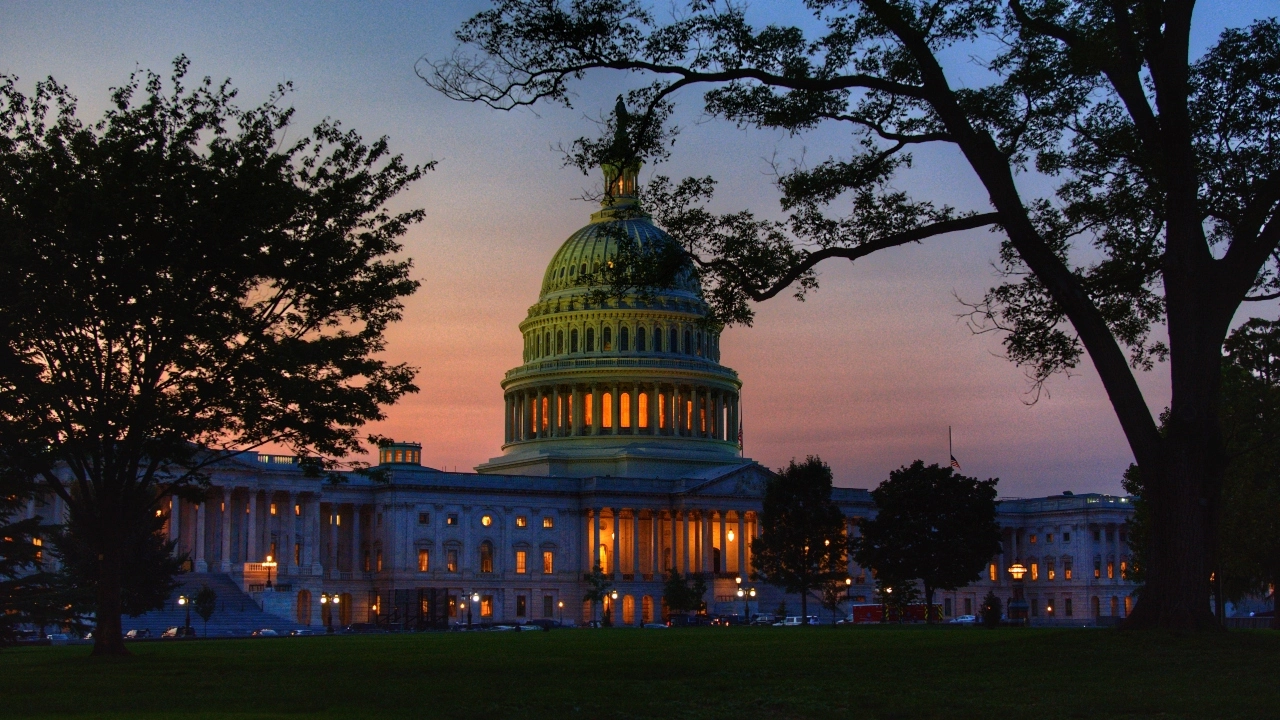Marijuana legalization has long been viewed by many as a left-wing cause, in part thanks to the political divisions of the Nixon era and the U.S. war on drugs in the 1970s.
But that has changed in recent years. And it has accelerated even more in recent months, boosting reform efforts at the state and federal levels.
More conservatives – particularly those who lean libertarian, such as billionaire activist Charles Koch – have joined the cannabis reform movement and are teaming with groups they might view as staunch opponents on other issues.
In short, the push for federal legalization increasingly is creating unlikely political bedfellows.
“When you’re talking about groups on both the left and the right in the cannabis space, there’s so much substantial overlap of values – when it comes to open markets questions, ensuring free interstate commerce, ensuring that legalization has criminal justice components – there’s very little opposition to those ideas,” said Randal Meyer, the executive director of the Global Alliance for Cannabis Commerce (GACC).
Meyer would know: He’s a self-identified libertarian, longtime Capitol Hill insider and former staffer in Republican Sen. Rand Paul’s office, another libertarian.
Meyer, for his part, is working with the Minority Cannabis Business Association (MCBA) – a nonprofit trade association that is perceived as more left-leaning – and the Cannabis Freedom Alliance (CFA), which is supported by Americans for Prosperity (AFP), the political organization founded in 2004 by Charles Koch and his brother, David, who passed away in 2019.
It’s a political marriage many might find surprising.
But MCBA Executive Director Amber Littlejohn called it a natural fit, given some of the philosophies shared by the groups.
“The strength of the overlap on some pretty foundational principles makes it a relationship that is really important for us and really all interests that are not large cannabis companies,” Littlejohn said of the MCBA’s strategic partnerships with the CFA and GACC.
Littlejohn is a political realist who understands that acting as a purist is often a nonstarter in Washington DC.
“We are here to execute a mission and to get the work done,” she said.
“And if it were a requirement that we aligned on every issue with every person with which we worked, we would never have partners on either side.”
She noted the MCBA doesn’t have a “multimillion-dollar lobbying budget,” while Koch-backed efforts can afford high-paid professional advocates.
“While I may have to hold my nose at times, if I can help people get out of jail by leveraging resources of an organization I don’t holistically agree with, I’m going to try to get people out of jail,” Littlejohn said.
History of nonpartisanship
Marijuana reform enjoys a history of support from libertarians and bipartisan congressional collaborations, said Morgan Fox, the new political director at Washington DC-based reform group NORML.
Fox began his professional activism in 2008 at the DC-headquartered Marijuana Policy Project (MPP), which has run successful state legalization campaigns across the U.S.
Business leaders need reliable industry data and in-depth analysis to make smart investments and informed decisions in these uncertain economic times.
Get your 2023 MJBiz Factbook now!
Featured Inside:
- 200+ pages and 50 charts with key data points
- State-by-state guide to regulations, taxes & opportunities
- Segmented research reports for the marijuana + hemp industries
- Accurate financial forecasts + investment trends
Stay ahead of the curve and avoid costly missteps in the rapidly evolving cannabis industry.
He later became the communications director for the National Cannabis Industry Association, a business trade group in DC.
Fox noted one of the early major funders of MPP was Peter Lewis, a wealthy supporter of liberal causes and the longtime head of auto insurance giant Progressive Corp., based in Ohio.
A 2013 obituary in The (Cleveland) Plain Dealer noted Lewis’ libertarian streak, saying, “Lewis considered himself a libertarian first and foremost. He wanted drugs legalized and regulated, like alcohol.”
Speaking of his early days at MPP, Fox said: “It was very much a scene where the progressive efforts that were happening in the cannabis movement were good but lacked resources, and well-funded libertarian donors came in and filled that gap.”
As for the political bedfellows that have emerged in the marijuana reform movement, Fox said more people realize cannabis prohibition is bad policy.
“When you look at cannabis prohibition in terms of politics,” Fox said, “whether it’s ideological or the way it’s been put into practice … there is something in prohibition for everyone to hate, unless you’re one of those people who feel that cannabis use is inherently immoral, and the number of people who think that is steadily shrinking.”
Cooperation growing at the Capitol
In Congress, numerous Republicans have worked with Democrats for more than a decade to reform marijuana laws.
A key pairing was two former congressmen from California – Republican Dana Rohrabacher and Democrat Sam Farr – in the U.S. House of Representatives.
The two teamed on a key piece of legislation called the Rohrabacher-Farr Amendment, which prohibited the federal government from interfering with states that legalized medical marijuana.
The amendment’s success – beginning when it first passed in 2014 and its subsequent renewal every year since – was a direct rebuff to the U.S. Drug Enforcement Administration, which had been conducting raids on medical cannabis dispensaries in California and other states.
The measure effectively handcuffed DEA agents with respect to the modern marijuana industry and helped the recreational side of the business flourish.
The same amendment was co-sponsored in the U.S. Senate by Paul – Meyer’s former boss – and Democrat Cory Booker.
While Rohrabacher and Farr are no longer in Congress, the amendment has been picked up by another bipartisan pair in the House: Ohio Republican David Joyce and Oregon Democrat Earl Blumenauer. The measure is now known as the Joyce-Blumenauer Amendment.
Rohrabacher and Blumenauer even partnered to found the bipartisan Cannabis Caucus in 2016.
Another bipartisan example is from 2011, when then-U.S. Reps. Barney Frank, a well-known liberal Democrat, and libertarian Republican Ron Paul (Sen. Rand Paul’s father), co-sponsored a bill to federally legalize, tax and regulate marijuana.
That legacy continues today, Fox and others pointed out. They cited these examples:
- Republican Rep. Joyce has co-sponsored the HOPE Act with New York liberal Rep. Alexandria Ocasio-Cortez, a Democrat, to expunge nonviolent cannabis criminal records.
- The FIRST STEP Act, a bipartisan criminal justice reform measure signed into law in 2018 by then-President Donald Trump. It produced sentencing and prison reforms for more victims of the war on drugs.
- The MORE Act, approved by the full U.S. House in 2020 in what the GACC’s Meyer called a “tripartisan” vote, with five Republicans and an independent libertarian joining 222 Democrats to pass the bill.
- The States Reform Act, a recently introduced bill to legalize marijuana federally. The measure, from Republican U.S. Rep. Nancy Mace of South Carolina, received endorsements from the CFA, GACC, AFP and the U.S. Cannabis Council, which is closely aligned with MPP.
Chris Lindsey, a longtime MPP staffer based in Montana, further noted that state-level politics underscores how liberals and conservatives prize personal freedom over marijuana prohibition.
Montana’s legalization of medical marijuana in 2004 drew support from voters across the political spectrum, he said.
Voters in the politically red state followed that up in the 2020 general election with the legalization of adult-use marijuana.
Lindsey added that MPP has worked with the Koch brothers’ network in the past on issues where they found common ground and that the Koch-funded AFP even provided MPP some interns.
“The reality is, people’s support of this isn’t based on their political affiliation,” Lindsey said. “It’s a nonpartisan issue.”
John Schroyer can be reached at john.schroyer@mjbizdaily.com.





